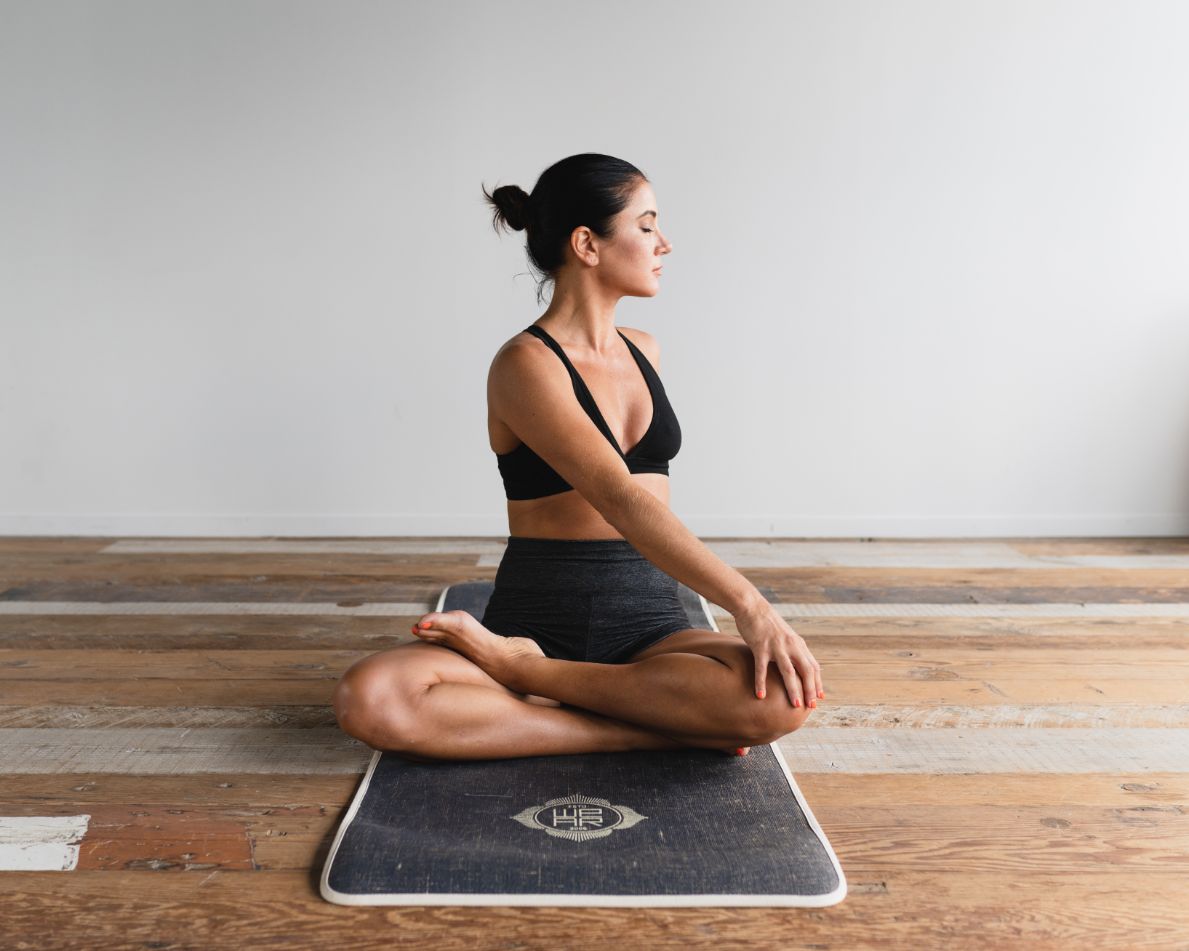Pilates teaches the body how to move correctly and develops long lean muscles that can help improve balance and reduce the risk of falls or injuries particularly as you age.
Additionally, consistent Pilates practice promotes body awareness which can increase overall body satisfaction and combat feelings of dissatisfaction with one’s appearance.
Mind And Motion Pilates offers classes delivering the top 10 benefits of pilates promoting strength, flexibility and holistic well-being. Join us today for transformational workouts.
1. Strengthens Your Core
Like yoga and other mindful movement exercises, Pilates helps you focus on your breath. This breathing technique can carry over into your everyday life to reduce stress, anxiety and even symptoms of menstrual pain such as dysmenorrhea.
Another key aspect of Pilates is that it works on strengthening the smaller muscle groups and stabilizing muscles, which is great for helping you feel balanced, strong and more stable day-to-day. This can help you perform better in other workouts and prevent injury too. The core muscles are used in every Pilates exercise, so you’ll build a strong foundation.
2. Improves Posture
Many people suffer from poor posture, which can lead to back ache, neck ache and headaches. Pilates helps to improve your posture by targeting the deep core muscles that support a neutral spine.
Pilates also promotes efficient movement by focusing on proper alignment and limiting forward flexion to get the most out of your Pilates workout, look for a highly trained instructor who can take into account your specific needs and health concerns. They should have a strong understanding of anatomy, movement and injury prevention.
3. Increases Flexibility
Pilates emphasizes quality of movement and is a low-intensity workout, meaning that it works your muscles without overstimulating the nervous system or fatiguing the body. As a result, you’ll leave your Pilates class or 1-2-1 session feeling both relaxed and invigorated.
The breathing exercises used in Pilates help you to slow down and breathe deeply, which can reduce both short-term stress symptoms like anxiety and long-term issues such as dysmenorrhea (painful menstrual periods). You should always consult your doctor before starting any exercise programme though especially if you have injuries or other health concerns.
4. Improves Breathing
Pilates exercises require you to take a deep breath in and then exhale, filling the body with fresh oxygen and removing stale carbon dioxide. This connection between breathing and movement promotes better circulation and respiration, enhances focus, and aids in the activation of specific muscles.
You learn to breathe intentionally through a process called diaphragmatic breathing. This type of breathing is cyclical and requires audible inhalations through the nose and strong pursed-lip exhale with percussive timing. It improves your lung efficiency, which in turn reduces menstrual pain.
5. Reduces Stress
Pilates exercises require you to focus on your movements and breath, which helps you clear your mind of other daily stresses. It can also help reduce anxiety and improve overall mental health.
It strengthens small muscle groups and stabilizer muscles, including those in the core, which is why it’s often incorporated into training for dancers and other athletes. This helps to build lean, toned muscles without bulk, which can reduce injury risk.
Exercise is mood-elevating, but Pilates takes it a step further. It also helps you feel more confident and in control of your body.
6. Strengthens Bones
Pilates is a weight bearing exercise, which helps increase bone density. The core strength, balance and coordination that Pilates improves are key factors in preventing falls (which often result in fractured bones), reducing pain and improving recovery from injuries or musculoskeletal conditions.
This is especially important for people with osteopenia or osteoporosis. The majority of fragility fractures occur in the wrist, thigh bone or spine and are usually caused by a fall. Pilates is a great addition to any exercise routine or an ideal complement to other weight training workouts.
7. Improves Mental Health
The Pilates method is based on whole-body health, so it’s no surprise that it also improves mental health. The focus on breathing, posture and controlled movements helps to increase body awareness and mindfulness.
Plus, you’re likely to find a group of people that you can bond with in a Pilates class, which can help keep you motivated and boost your mood. Try it out to see how much of an impact it can have on your life!
8. Builds Stamina
Since Pilates exercises strengthen smaller muscle groups and stabilizer muscles, it builds strength without creating bulk and helps improve balance and core connection. This may minimize injury risk and make everyday tasks, such as reaching for a glass of water, easier.
Pilates also involves breathing techniques, which can help reduce stress in the moment and ease long-term symptoms of anxiety or depression. That makes it a good complement to other types of exercise. But it’s always smart to talk to your doctor before starting a new exercise routine.
9. Strengthens Muscles
Pilates targets smaller, stabilizing muscle groups—like the muscles in your core—to create strength and endurance. It’s a great way to prevent injury, says Milton, and can boost performance for a variety of sports.
The focus on coordinated breathing and body awareness also improves your balance and coordination, which can reduce the risk of falls and other injuries. Plus, Pilates exercises can help you feel taller, stronger and more confident day-to-day. That’s why it makes a perfect complement to other exercise, like cardio and weight training.
10. Boosts Immune System
Joseph Pilates described breathing in his system as an internal shower for the body, and he was right. Pilates teaches deep, diaphragmatic breathing that stimulates and improves lung capacity.
It also helps the muscles become balanced, which prevents injury. It even helps to reduce stress, which research shows can impair immunity.
Despite what you may see on social media, Pilates is an accessible form of exercise for people of all fitness levels. Add it to your routine and reap the rewards all year round! You’ll be healthier and feel great!


